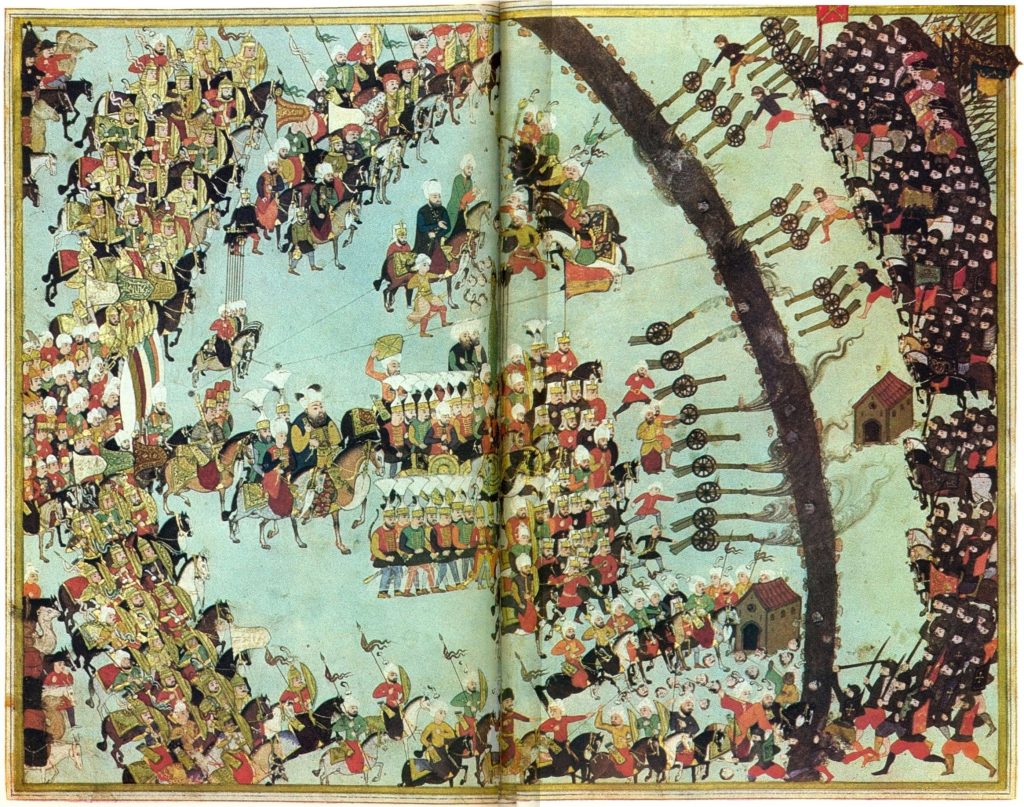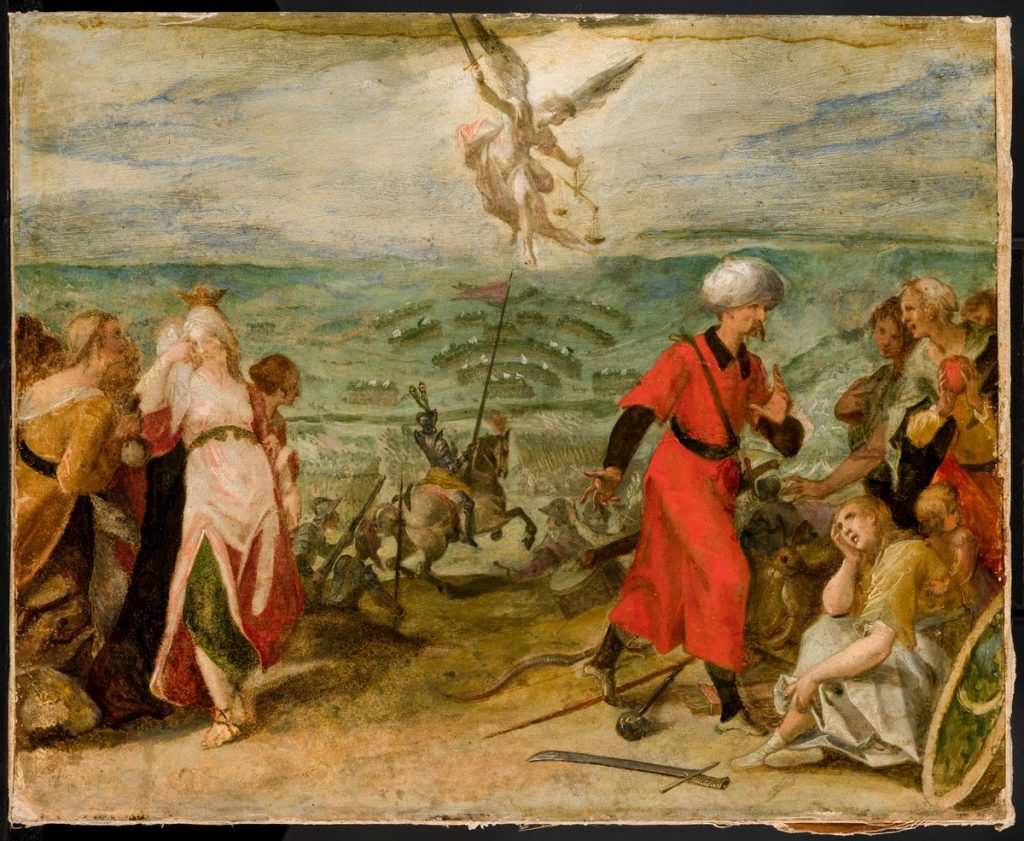
Forthcoming Article Announcement: Dr. Ethan L. Menchinger, “The Battle of Haçova/Mezőkeresztes (1596): Myth, Miracle, and Political Theology in the Ottoman Empire”
Dr. Menchinger will publish a new article with the journal Turcica.
On 25 October 1596, an Ottoman army led by Sultan Mehmed III engaged an imperial force under Archduke Maximilian of Austria on the plain of Mezőkeresztes, or Haçova in Turkish, about 150 km northeast of Budapest. On the second day, in disarray and routed, Ottoman forces rallied to drive the enemy back and win an unexpected, total victory. The battle went down in legend. Witnesses and later authors claimed that something ineffable and wondrous had happened that day, something miraculous, and ranked it above even the great victories at Çaldıran (1514) and Mohać (1526). The outcome, they said, was clearly “no work of man (sun‘-ı beşer değildür).”
This article explores sources’ miraculous interpretations of Haçova from the 16th to the 19th centuries for what they can tell us about Ottoman political theologies. It focuses on three main readings: one drawing on lore about holy warriors (gazis), invisible spiritual entities, and saintly miracles; a second focused on the dynasty’s spiritual bond with the Prophet Muhammad as mediated through a number of holy relics that were brought on campaign, including the Prophet’s mantle (hırka-ı şerif); and a third pointing to complex links between cause and effect, action and divine aid, and a related theology of will.
Find out more about Dr. Menchinger’s exciting research here, and on the Collective’s Researcher webpage.
Image Credits of the feature image above: Miniature of the battle from Talikizade Mehmed Efendi’s official palace account, with one figure holding up the case used to carry the Prophet’s mantle. Eğri Fethi Târihi, Topkapı Palace Museum Library, Hazine, nr. 1609. Wikimedia.

Painting by Hans von Aachen, Allegory of the Battle of Mezőkeresztes, ca. 1603/4, Museum of Fine Arts, Budapest. Wikimedia.






0 Comments